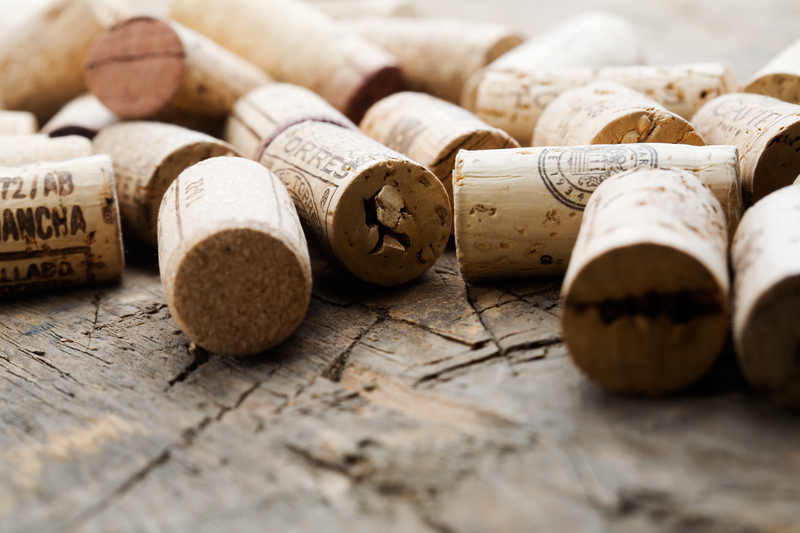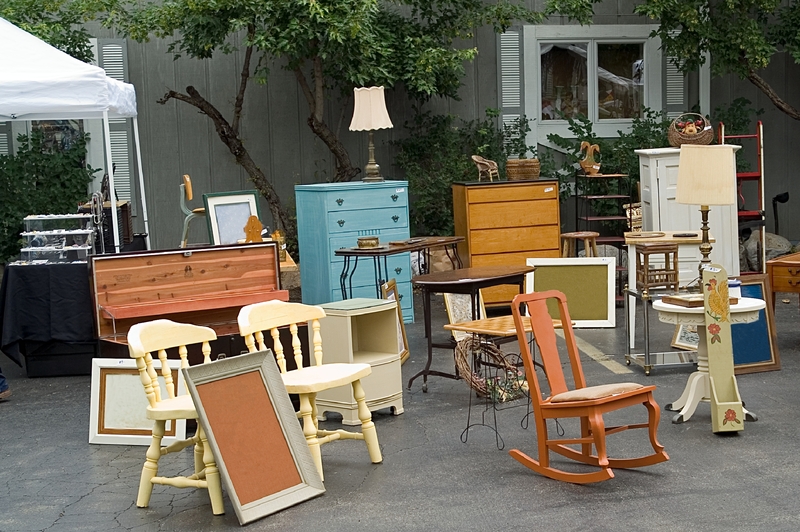Eco-Conscious Steps to Let Go of Extra Pots and Pans
If you open your kitchen cupboards and sigh at the clutter of unused cookware, you're not alone. Many of us collect extra pots and pans over the years, whether due to gifts, impulse purchases, or changing cooking habits. However, disposing of old cookware in an environmentally responsible manner is just as important as cutting down on kitchen clutter. Embracing eco-conscious steps when letting go of surplus pots and pans ensures that your actions benefit both your home and the planet.

Why Eco-Friendly Disposals Matter
Traditional disposal methods, like tossing unwanted kitchenware straight into the trash, contribute needlessly to landfill waste. Materials such as aluminum, stainless steel, and nonstick coatings can take decades, if not centuries, to break down. Moreover, pots and pans often contain valuable or recyclable materials, underscoring the importance of responsible disposal methods.
Assessing Your Cookware Pile: Why Do You Have Extra Pots and Pans?
Before making decisions, it's important to understand how you accumulated excess cookware. Consider the following:
- Duplicates: Do you have two or more of the same size or type?
- Condition: Are some pieces damaged, warped, or have failing nonstick coatings?
- Purpose: Are there pots and pans you never or rarely use?
- Upgrade cycles: Did you buy better versions but hang onto the older ones 'just in case'?
Once you've assessed, create two categories: those in good, usable condition and those that are damaged or non-functional. This will guide your eco-conscious disposal approach.
Eco-Friendly Ways to Part with Usable Pots and Pans
If your cookware is still in good, working condition, consider the following green options instead of throwing them out:
1. Donate to Local Charities or Shelters
- Local donation centers such as Goodwill, Salvation Army, or regional charities regularly accept gently used kitchen equipment.
- Women's and family shelters, community kitchens, and transitional housing organizations often need cookware donations.
- Call ahead to confirm their current needs and any restrictions regarding materials (nonstick, aluminum, etc.).
Donating is a win-win eco-conscious solution: it prevents waste and supports those in need.
2. Offer Items via Online Marketplaces
- Platforms like Facebook Marketplace, Craigslist, OfferUp, or Nextdoor allow you to rehome your extra kitchenware within your local community.
- Try posting items as "Free" for a quick pickup, or sell if your pots and pans are high-quality brands.
- Be honest in your descriptions, and include clear photos to attract new users.
3. Organize a Neighborhood Swap
- Host a kitchenware swap party with friends or neighbors to pass along pots, pans, bakeware, and utensils you no longer need.
- This is also a great opportunity to encourage sustainable habits among your peers.
- Leftover items can be donated collectively or responsibly recycled.
4. Gift to Students or New Homeowners
- Young adults moving into their own homes, college students, and those setting up new households often appreciate gifted kitchenware.
- Check with local colleges, housing cooperatives, or post on school-related classified ads.
Sustainable Disposal Methods for Damaged or Unusable Pots & Pans
Not all cookware is fit for another round in the kitchen. When donating isn't an option, here's how to responsibly get rid of damaged pots and pans:
1. Take Advantage of Metal Recycling Programs
- Most metal cookware such as stainless steel, copper, cast iron, and aluminum can be recycled at scrap metal facilities.
- Remove any non-metal parts (plastic handles, rubber lids, or glass covers) to ensure successful recycling.
- Check your city's guidelines--some municipal curbside recycling programs accept metal cookware, while others require drop-off at a specific site.
2. Nonstick Pans Require Special Handling
- Pans with Teflon or ceramic nonstick coatings usually cannot go with regular metals because of their surface chemicals.
- Contact your manufacturer--they may accept old pans for responsible reuse or advise you on local recycling locations.
- Look for specialty recycling programs (such as TerraCycle) that accept cookware with nonstandard coatings.
3. Creative Upcycling & Repurposing Ideas
- Turn old pots and pans into planters, birdbaths, or quirky garden ornaments.
- Paint and hang pans as decorative wall art in your kitchen or patio.
- Use battered bakeware as storage trays or tool organizers in the garage or craft room.
- Craft projects can be a fun way for families to spend time together while promoting waste reduction.
By repurposing, you give cookware a second life and avoid sending them to landfills.
Common Materials & Their Eco-Conscious Disposal
Let's break down the most popular cookware materials and explore the greenest disposal solutions:
Stainless Steel, Copper, Cast Iron, and Aluminum
- 100% metals are highly recyclable. Rinse and remove as much food and grease as possible before placing in recycling.
- If handled correctly, these cookware types can be melted down and reformed into new products, reducing demand for new metals.
Nonstick-Coated Cookware (Teflon, Ceramic)
- Nonstick coatings often complicate recycling--many facilities will not accept them mixed with regular metal recyclables.
- Look for manufacturer take-back programs or eco-initiatives that separate and process nonstick coatings safely.
- Avoid sending them to landfill when possible due to their chemical content.
Enamel-Coated and Glass Cookware
- Enamel coatings on metal can sometimes be handled like regular metal recycling, but verify with your local facility.
- Glass cookware is often made from a specific type of glass that's not accepted by curbside bottle/glass recycling. Check for specialty recycling centers or upcycle as oven-to-table serving ware.
Eco-Conscious Pot and Pan Brands: Choose Wisely for the Future
When replacing old cookware, consider supporting sustainable brands that emphasize longevity, repairability, and recycling. A few eco-friendly cookware companies to explore:
- GreenPan: Uses recycled materials and offers take-back programs for end-of-life pans.
- Made In: Stainless steel and carbon steel pans with a focus on durability and recyclability.
- Field Company: Produces cast iron cookware designed to be passed down for generations.
- De Buyer: French carbon steel pans made with recycled steel and minimal packaging.
Look for materials like recycled aluminum or brands that offer lifetime warranties, which ensure a smaller ecological footprint over time.
Bonus: Eco-Conscious Maintenance Means Fewer Replacements
One of the greenest things you can do is extend the life of your existing pots and pans. Proper care helps minimize waste:
- Avoid metal utensils on nonstick pans to prevent scratching.
- Hand wash instead of using dishwashers, especially for delicate coatings.
- Use gentle scrubbers for stubborn residue, and avoid high heat unless the pan is rated for it.
- Re-season cast iron regularly to maintain nonstick properties.
- Don't overheat empty pans--high temperatures can warp or degrade various materials.

Quick Guide: Eco-Conscious Decluttering Steps
Here's a step-by-step summary for mindful removal of extra pots and pans:
- Sort your cookware--separate by condition and material.
- Donate items in good condition locally (charity, shelters, online).
- Recycle metals at scrap yards or curbside (remove non-metal parts first).
- Upcycle damaged pieces for creative home or garden use.
- Seek manufacturer advice for nonstick and specialty coatings.
- Choose sustainable brands for future purchases to close the eco-friendly loop.
Conclusion: Small Choices, Big Impact
Letting go of extra pots and pans isn't just about regaining kitchen space--it's a chance to make an environmentally responsible choice. Every eco-conscious disposal helps reduce landfill waste, conserves resources, and supports a greener future. Whether you're donating, recycling, or upcycling, remember that thoughtful action in the kitchen carries positive ripples far beyond your home!
By embracing the eco-conscious steps to let go of extra pots and pans, you bring harmony to your kitchen and contribute meaningfully to a more sustainable world. Reevaluate what you own, pass on what you no longer need, and recycle or repurpose tired tools--every pan given a second chance is a step toward greener living.